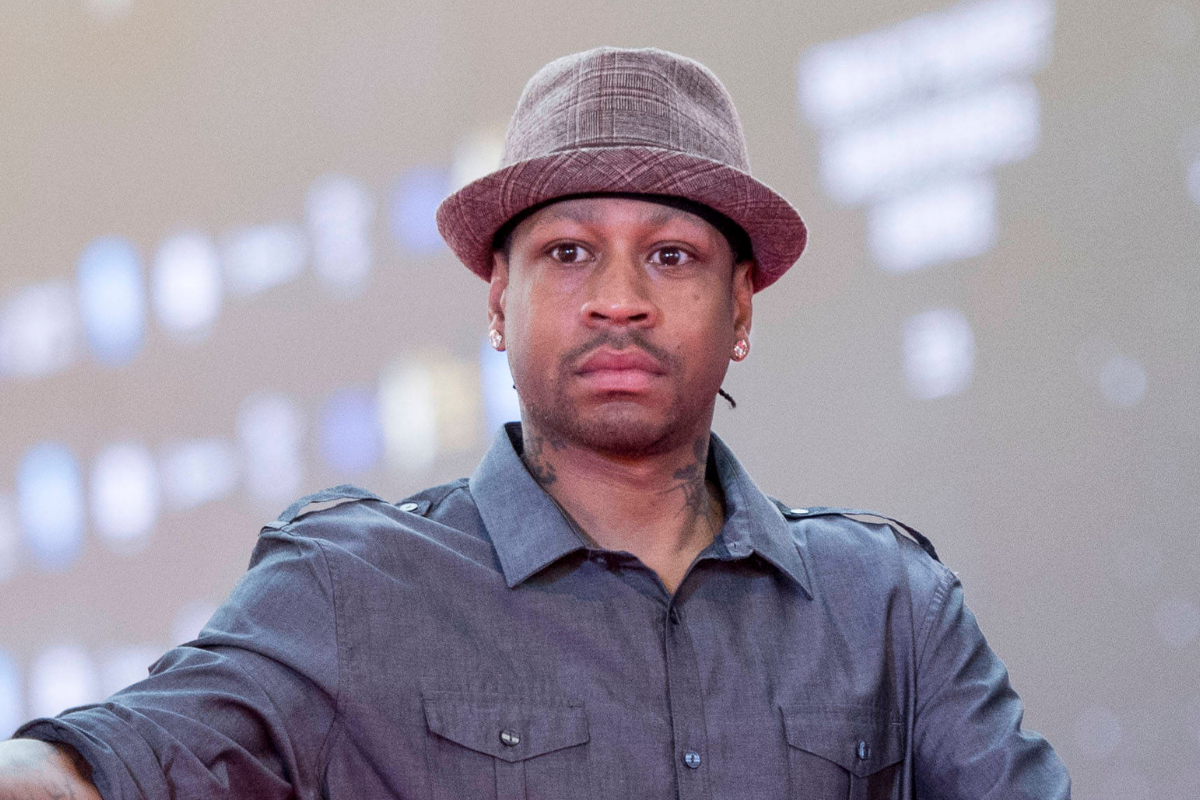
Imago
IMAGO

Imago
IMAGO
It’s been three decades since Allen Iverson revolutionized NBA culture, and only now he’s simplifying it. He’s on the rounds promoting his memoir, Misunderstood, a fitting title for his entire public life. The Answer was vilified and hailed for the same thing, for being an outlier of the norm. He’s 50 now, no longer drinking, still a fashion icon, but a different person. As hindsight is 20-20, he’s answering that question we’ve all wondered about at least once.
Watch What’s Trending Now!
On The Breakfast Club, Charlamagne Tha God said that the NBA could’ve easily said, “Nah, we don’t want you in our league,” and banned him for not conforming. But why didn’t they? “They profited off it too.”
Facts. Michael Jordan was still three-peating when Allen Iverson arrived in the league at the same time as a baby-faced Kobe Bryant. And AI crossed up the Bulls legend! From the days he was with the 76ers, he was drawing ticket and merch sales. It helped that his sponsors at Reebok, who just lost Shaq to the affordable sneaker market, were pouring money into the league.
ADVERTISEMENT
Fans didn’t care about the baggy clothes, the sleeves, the ink, or the hairdos. The NBA did. Iverson admitted to his longtime friends in The Breakfast Club that the NBA’s intolerance for his personality once hurt him. “One of the things that hurt me is I was on a magazine. They wanted me on a magazine because of my talent and who I was, but they airbrushed my tattoos off. So you want me, but you… You know, you want some of me.”
View this post on Instagram
That’s an infamous incident. Iverson was on the cover of the 1999-2000 issue of the NBA Hoops magazine. Except it was a stark difference from the Answer they knew. This AI might as well have been AI-generated with specifications to leave out the tattoos, chains, and diamond earrings. Those tattoos were tributes to his mother, grandmother, and children. But the NBA felt the hip-hop culture AI embodied wouldn’t appeal to the older audience who consumed the NBA.
ADVERTISEMENT
Bubba Chuck was so hurt, he lashed out at the NBA, stating, “They don’t have the right to try to present me in another way to the public than the way I truly am without my permission. It’s an act of freedom and a form of self-expression. That’s why I got mine.”
It didn’t compare to the backlash the league got for its move, but airbrushing tattoos of magazine covers never stopped. Today, the Sixers legend is more levelheaded and has learned an important lesson from how the NBA treated him.
ADVERTISEMENT
Allen Iverson sacrificed himself for the new generation
The biggest incident signifying Allen Iverson’s cultural impact came five years after the magazine incident. With Michael Jordan on the way out, David Stern’s NBA wanted to present the new generation in a new light. While AI didn’t fit that image, they weren’t curbing him because, as he said, they profited off Allen Iverson being Allen Iverson.
Things came to a head when even Kobe Bryant and more had massive chains and tattoos. Before AI came into the league, Jordan and Pippen were seen at press conferences in simple suits. That was changing soon, and the NBA pulled the brakes on it with a league-wide dress code mandating suits for press events. Not only Iverson, even Paul Pierce, Stephen Jackson, and more outliers were against it. But AI was seen as the face of the rebellion when the dress code became informally known as the ‘Iverson Rule.’
ADVERTISEMENT
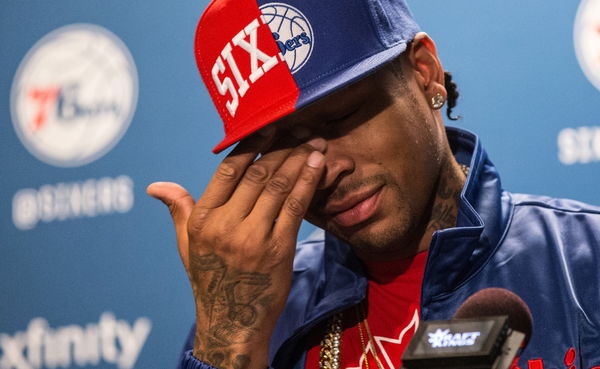
USA Today via Reuters
Apr 8, 2016; Philadelphia, PA, USA; Philadelphia 76ers legend Allen Iverson wipes tears away as he talks about his selection for enshrinement in the Naismith Memorial Basketball Hall of Fame as a member of the Class of 2016 during a press conference at Wells Fargo Center. Mandatory Credit: Bill Streicher-USA TODAY Sports
20 years later, Iverson said that he got the ‘whooping’ for the dress code, but he wasn’t intentionally going against the NBA. Suits were for church, funerals, and courts. The baggy street style reflected where he came from and icons like Tupac.
Top Stories
Tragic Death of Shaq & Kobe’s Ex-Teammate Linked to Fatal Mistake, Authorities Confirm
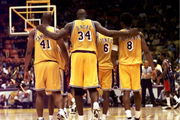
Stephen Curry’s 6-Word Reaction to Dad Dell Curry’s Historic Hornets Announcement
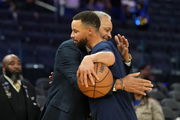
Unrivaled CEO Alex Bazzell Downplays Concern as Year 2 Ratings Slide Raises Questions

Is Kevin Durant Dating EJ Johnson? Fact Checking Viral Claim
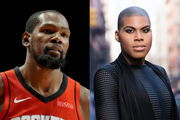
15 Years After Messy Divorce, 53-YO Shaquille O’Neal Expresses Remarriage Wish
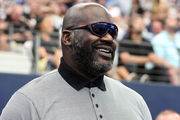
“David Stern and the rest of the NBA was like, ‘No,’ because it was alright when I was doing it. But then everybody else said, ‘Okay, like he can do that. We can do this.’ So then everybody, you know, you see Kobe coming in with the diamond chains on and the baggy clothes, and, you know, everybody started doing it. Then the league was like, ‘Hold on, we got to do something about that.’”
ADVERTISEMENT
He maintains, “It wasn’t anything malicious,” and he learned so much about the NBA business through this experience. Today, the hip-hop aesthetic is more normal in the NBA than suits ever were, and almost every player credits Allen Iverson for being their inspiration for it. He bluntly told the NBA when they airbrushed his tattoos. “Everybody knows who Allen Iverson is.”
ADVERTISEMENT
ADVERTISEMENT
ADVERTISEMENT

